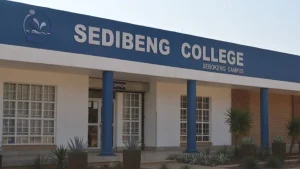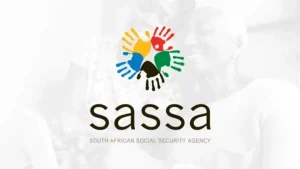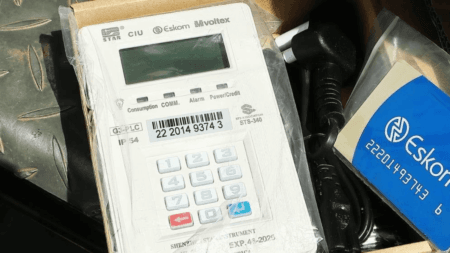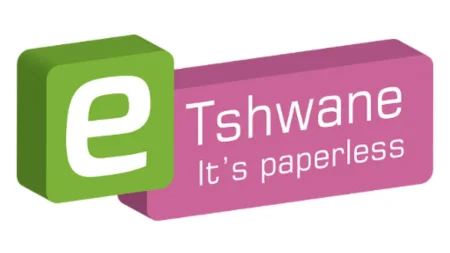In 2025, bank impersonation scams have become one of South Africa’s most common fraud tactics. The South African Banking Risk Information Centre (SABRIC) reports that vishing — voice-phishing or scam calls — increased by over 30% in the past year. These criminals sound professional, have your personal details, and can even spoof your bank’s phone number.
Whether you’re a SASSA beneficiary, pensioner, government worker, or professional, scammers know you use mobile banking and trust calls from “the bank”. The good news? Once you know the red flags, spotting fake calls becomes easy.
Here are 15 warning signs that the caller isn’t who they say they are — and what you can do to protect yourself.
1–5 Red Flags About the Way They Speak
1. They Create Panic or Pressure You to Act Immediately
Scammers start with urgency: “Your money is being stolen right now! You must confirm your details or we’ll freeze your account.”
They want you to panic so you won’t think clearly.
Real banks never rush you. They’ll calmly explain an issue and encourage you to verify through official channels.
What to do: If you feel pressured, hang up. Call your bank directly using the number on your card or their website.
2. They Refuse to Let You Hang Up or Call Back
A legitimate bank agent will always allow you to end the call and phone back. Fraudsters don’t — they’ll insist you stay on the line, claiming “time is running out”.
What to do: Politely say, “I’ll call the bank myself,” then hang up. Don’t worry about offending them; scammers rely on your politeness.
3. They Claim There’s ‘Fraud on Your Account’ and Need Your Help Right Now
This is one of the most common tricks. They sound official and mention transactions you don’t remember making. They might even say they’ve frozen your card to “protect” you.
The truth: If fraud is suspected, banks freeze transactions automatically and contact you via SMS, push notification, or through the official banking app — not by asking for private information over the phone
4. They Sound Overly Friendly or Informal
Some scammers start with charm: “Hey, it’s Thabo from FNB, I just want to help you quickly.” They’ll joke, use your first name, or sound unusually casual.
Why this matters: Real bank employees follow strict scripts and professional tone guidelines. Over-familiarity is a red flag.
5. They Refuse to Verify Your Identity Properly
A real bank will ask you to confirm limited details (like the last four digits of your ID). A scammer either already “knows” too much — or avoids verification altogether.
What to do: Ask them for their full name, department, and a callback number. Then independently confirm those details on your bank’s official website before proceeding.
6–10 Red Flags About What They Ask For
6. They Ask for Your OTP or PIN
If someone on the phone asks for your one-time PIN, password, or CVV, hang up immediately. These are private security keys known only to you.
No South African bank — not ABSA, Capitec, FNB, Nedbank, or Standard Bank — will ever ask for an OTP or PIN.
Tip: Even reading out an OTP to “cancel a transaction” is a trap. That OTP often authorises the scammer’s access to your account.
7. They Want You to Read Out Your Card Number or CVV
Scammers often say, “We need to verify your card number to block it.” That’s false. Your bank already has those details securely stored.
Real verification happens through your app, branch visit, or official online portal — never verbally.
8. They Ask You to Move Money ‘to a Safe Account’
The caller may say, “Your account is compromised; transfer your funds to this temporary safe account.” This is one of South Africa’s most damaging scams — because once the transfer is made, your money is gone.
What a real bank does: They freeze or reverse fraudulent transactions. They never ask customers to move funds.
Example: SABRIC confirmed that in 2024 alone, “safe account” scams caused millions in losses across Gauteng and KwaZulu-Natal.
9. They Want You to Install a ‘Security App’ or Give Remote Access
Another modern twist involves scammers telling you to download an app like “QuickAssist”, “TeamViewer”, or “AnyDesk” so they can “check your account safely”.
Reality: These are remote-access tools. Once installed, scammers can see your phone screen and capture passwords or OTPs.
Rule: Never install apps suggested during an unsolicited call. Only download your bank’s official app from the Google Play Store or Apple App Store.
10. They Ask You to Confirm Personal Details Like Your ID Number or Password
This might sound innocent — but it’s a trap to collect enough data for identity theft. With your ID, date of birth, and bank name, scammers can apply for loans or open accounts in your name.
What to do: If a caller asks for your ID number or password, hang up. Then alert your bank and the South African Fraud Prevention Service (SAFPS) at www.safps.org.za.
11–15 Red Flags About the Call Itself
11. The Number Looks Suspicious or Private
Many fake calls come from mobile numbers (like +27 61 …, +27 68 …) or display “Private Number”.
While banks can use multiple lines, official calls usually show the bank’s name or a recognised number.
Tip: Never trust caller ID alone. Scammers can “spoof” real numbers to make it appear as if the bank is calling.
12. You Hear Background Noise or a Call Centre That Doesn’t Sound Local
Listen carefully. If you hear chatter, echoing, or poor sound quality, it might not be a legitimate call centre. Many scam operations use overseas or fake setups that sound unprofessional.
13. The Call Comes at an Unusual Hour
Scammers often call late at night or early in the morning to catch you off guard. Legitimate banks operate during business hours or contact you via secure messages for after-hours issues.
14. They Refuse to Send Official Confirmation via Email or SMS
Real bank representatives will always send confirmation of actions — like freezing a card — via official email, SMS, or app notification.
If the caller refuses or says, “We can’t send anything right now,” it’s almost certainly fake.
15. They Claim You’ll Lose Money If You Hang Up
The final and most obvious red flag. Scammers use fear to stop you from disconnecting.
They’ll say things like, “If you hang up, the money will go through!” or “This is your last chance to save your account!”
That statement alone proves it’s a scam.
What to Do If You Get a Suspicious Call
If you recognise even one of these red flags, act immediately.
Step 1: Hang Up Immediately
Don’t argue, don’t explain — simply end the call.
Step 2: Don’t Share Any Personal or Banking Information
Never give out passwords, PINs, card numbers, or OTPs. If you already shared information, change your online banking password right away.
Step 3: Call Your Bank’s Official Number
Use only the numbers listed on your bank card or their official website:
- ABSA: 0860 557 557
- Capitec: 0860 10 20 43
- FNB: 087 575 9444
- Nedbank: 0800 110 929
- Standard Bank: 0800 020 600
Ask if the bank tried to contact you. They can verify and flag your account for security monitoring.
Step 4: Report the Scam
Notify:
- SABRIC (South African Banking Risk Information Centre) — www.sabric.co.za
- SAFPS (South African Fraud Prevention Service) — 011 867 2234 or www.safps.org.za
- Your nearest police station if money was lost.
Step 5: Check Your Account and Credit Profile
Review recent transactions. If anything looks suspicious, contact your bank’s fraud department immediately. You can also use SAFPS Protective Registration to flag your ID against future fraud attempts.
Step 6: Warn Others
Tell family and colleagues — especially older relatives or those new to online banking. Awareness saves lives and money.
How Banks in South Africa Really Contact You
The surest way to protect yourself is to understand how legitimate banks operate.
What Real Banks Do
- Contact you mainly through verified channels — official phone numbers, SMS, or in-app alerts.
- Never ask for PINs, OTPs, or passwords.
- Use professional communication and allow you to call back.
- Send written confirmation for any action taken on your account.
- Provide reference numbers you can verify through customer service.
What Fake Callers Do
- Create panic and urgency.
- Refuse to verify who they are.
- Ask for private information.
- Insist on transferring money or installing apps.
- Demand secrecy.
What to Do If You Get a Suspicious Call
- Hang up immediately. Don’t argue or explain.
- Don’t share personal information. Never read OTPs, passwords, or card numbers aloud.
- Call your bank’s official number.
- ABSA 0860 557 557 Capitec 0860 10 20 43 FNB 087 575 9444 Nedbank 0800 110 929 Standard Bank 0800 020 600
- Report the incident to SABRIC and SAFPS (011 867 2234).
- Change your passwords and check transactions.
- Warn others — share what happened with friends or relatives.
Example Comparison Table
| Action or Statement | Real Bank | Scammer |
|---|---|---|
| “Please confirm your OTP.” | Never | Always |
| “We’ve noticed suspicious activity; please log in through your app.” | Often | Rarely |
| “Move your money to this safe account.” | Never | Common |
| “We can’t send you confirmation.” | Never | Always |
| “You can call back to verify.” | Always | Never |
Verified Contact Details
| Bank | Fraud Helpline | Website |
|---|---|---|
| ABSA | 0860 557 557 | absa.co.za |
| Capitec | 0860 10 20 43 | capitecbank.co.za |
| FNB | 087 575 9444 | fnb.co.za |
| Nedbank | 0800 110 929 | nedbank.co.za |
| Standard Bank | 0800 020 600 | standardbank.co.za |
Bookmark these numbers or save them in your phone now.
Read more: SASSA Social Grant Payment Dates for November 2025 Announced
Bank impersonation scams are becoming more polished, but awareness remains the strongest defence. Every time you pause, question, and verify, you make it harder for fraudsters to win.
Your bank will never ask for your PIN, OTP, or passwords — and it will never pressure you to act immediately or move money to a so-called “safe” account. If a call feels off, trust your instincts and hang up. Then confirm directly with your bank.
Now it’s your turn to help stop the next scam.
- Share this guide with your family, colleagues, and neighbours.
- Save your bank’s official fraud line on your phone.
- Report suspicious calls to SABRIC, SAFPS, or your local police station.
The more South Africans stay informed, the fewer victims scammers will find. Protect your money, protect your peace of mind — and help someone else do the same today.










